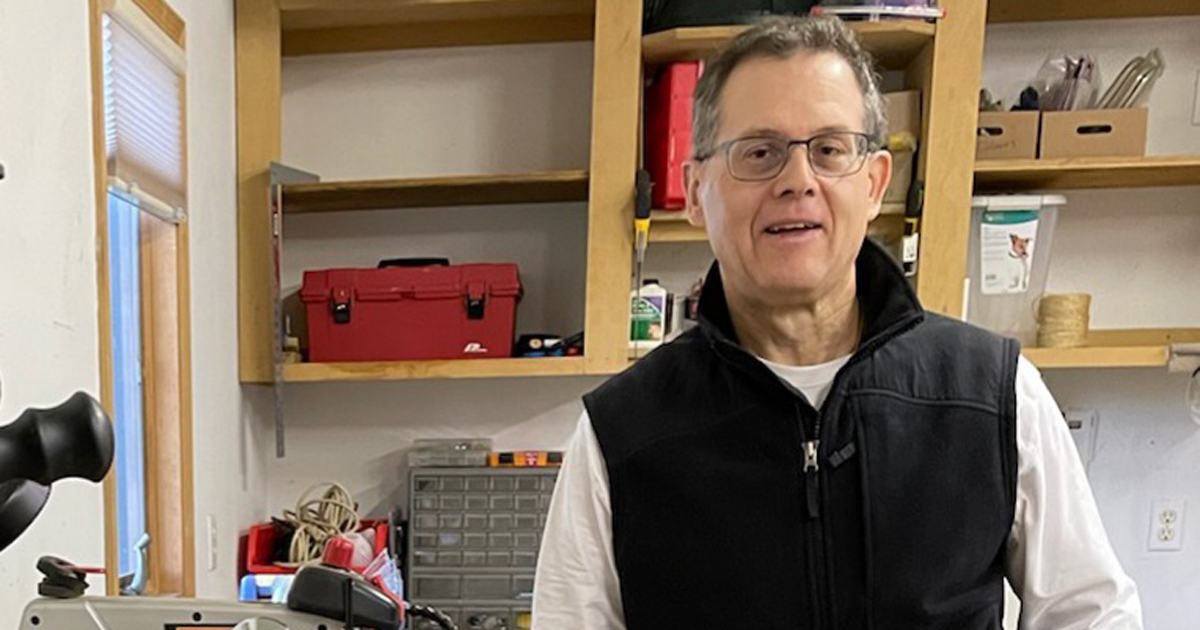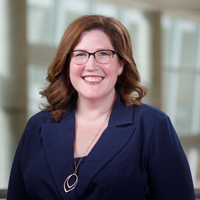Awake laser therapy: A patient finds new hope for a life-long vocal condition

If you've ever had problems with your voice, you know how frustrating it can be to communicate – at home, out with friends or at work. Vocal issues can impact every aspect of life. Brian Mainwaring of Council Bluffs, Iowa, can relate. Although semi-retired now, Mainwaring has dealt with throat problems most of his life. First seeking medical help around the age of 30, his vocal issues continued to progress to the point of needing many interventions.
"I finally was diagnosed with vocal cord papilloma," recalls Mainwaring. "I was thinking about becoming a teacher and coach at a certain point, but after continuing to struggle with vocal issues repeatedly, I realized my voice wasn't going to last. I had to rethink my career options and commit to being an involved patient."
After recognizing that his condition would require ongoing treatments, Mainwaring is grateful for finding awake laser therapy provided by Nebraska Medicine. "This procedure is such a simple process that I'm able to use it regularly to address my particular issue. My quality of life has improved because I can get this treatment exactly when I need it."
What is awake laser therapy?
KTP (potassium-titanyl-phosphate) laser therapy is a precise treatment for vocal fold polyps, papilloma and precancerous lesions. Noninvasive and outpatient, the procedure eliminates the need for general anesthesia for a quicker and safer treatment while awake. Little recovery time results in less downtime than previous methods; can reduce scar tissue; eliminate multiple breathing tubes; and unnecessary metal equipment.
"As the word has spread about awake therapy, it's been a lovely and humbling experience to be of help and service to a broader group of patients like Brian," explains Jayme Dowdall, MD, Nebraska Medicine otolaryngologist. "KTP laser therapy is an example of where patient need and technology is well matched. It's been a beautiful thing to see the technology improve over time, making outpatient treatment possible."
The advantages of awake laser therapy have been a great help to patients like Mainwaring who deal with reoccurring growths. "I've been pretty relentless about addressing this problem because it became apparent the issue was not going to fix itself," says Mainwaring. "The surgeries themselves were never that bad for me, but repeatedly going under anesthesia became difficult. The need for voice rest has shortened with this new approach, I am home quicker and I can use my voice sooner. What used to be a major time investment is now about two hours plus a few days of voice rest."
What happens during KTP laser therapy treatment?

Once the treatment option is determined, a patient undergoes a complete evaluation and walkthrough of the procedure. To begin, the nasal passages are numbed with a topical anesthetic, then lidocaine is given through a nebulizer and gargled to relax the throat. A tiny camera is inserted through the nose and treatment starts, lasting only five to eight minutes. For comfort, the patient can listen to their favorite music and have a family member with them to provide support.
After the procedure, the actual recording is shared with the patient so they can see what was accomplished. "Patient feedback is valued as we partner with patients to improve future outcomes," adds Dr. Dowdall. "After treatment, we actually discourage whispering. Depending on the patient, we advise anywhere from no voice rest (if the lesions are not on the vocal cords themselves), or voice rest up to 48 hours to a week or two."
"Without question, this has been the best experience for treating this problem," says Mainwaring. "The staff is great and because I need these treatments repeatedly, I've gotten to know many of them. The process is very streamlined and because they're set up for voice patients specifically, they work to meet those specific needs before, during and after treatment. They even play my favorite Beatles music for me. Because my issues haven't gone away, I'll continue to address them regularly. To lose my voice would be devastating, so I stay on top of it."
Not everyone needs repeated treatment, it depends on each person's body, where the problem is located and their specific immune system response. "If symptoms keep coming back and causing problems for a patient's vocal function, as long as we've ruled out anything precancerous we can observe patents over time and utilize additional treatment as needed," says Dr. Dowdall. "It's always a pleasure to partner with patients and their care. In Brian's case, he's developed an intuition about his body that is unique and can tell us when he may need another treatment. He is a joy to work with."
Improved treatment options offer new hope
To be certain, Mainwaring is grateful to the Nebraska Medicine team for their ongoing care, but also to his wife of 30 years for supporting him through his long history of vocal challenges. "It's important to have a support system when you go through issues like mine," explains Mainwaring. "You need help when you're on voice rest to communicate and make life work. Someone to speak for you when you can't – to be your ears and voice. When you're forced to be around people and not talk, you become quite observant of what's going on around you. It's made me more sensitive to others who have chronic conditions."
If you are walking a similar journey, Mainwaring has a bit of advice. "Stay mindful of using your voice in social arenas. Don't be afraid to explain your situation to friends and family so they understand your vocal limitations or efforts to protect your voice. Seek help and don't give up! The dark days of addressing these issues are behind us now thanks to this new procedure. Always stay ahead of it and know you'll receive exceptional care with the Nebraska Medicine team."
Nebraska Medicine has the only comprehensive voice program in the region. "If you are experiencing symptoms like hoarseness or vocal changes that last multiple weeks, we recommend coming to see us," says Dr. Dowdall. "In addition to in-office visits, our team offers telehealth services to help you prepare for what you may experience in the exam room, arrange for labs and even go over test results to save a trip to the doctor's office."
Learn more about our ear, nose and throat services.




